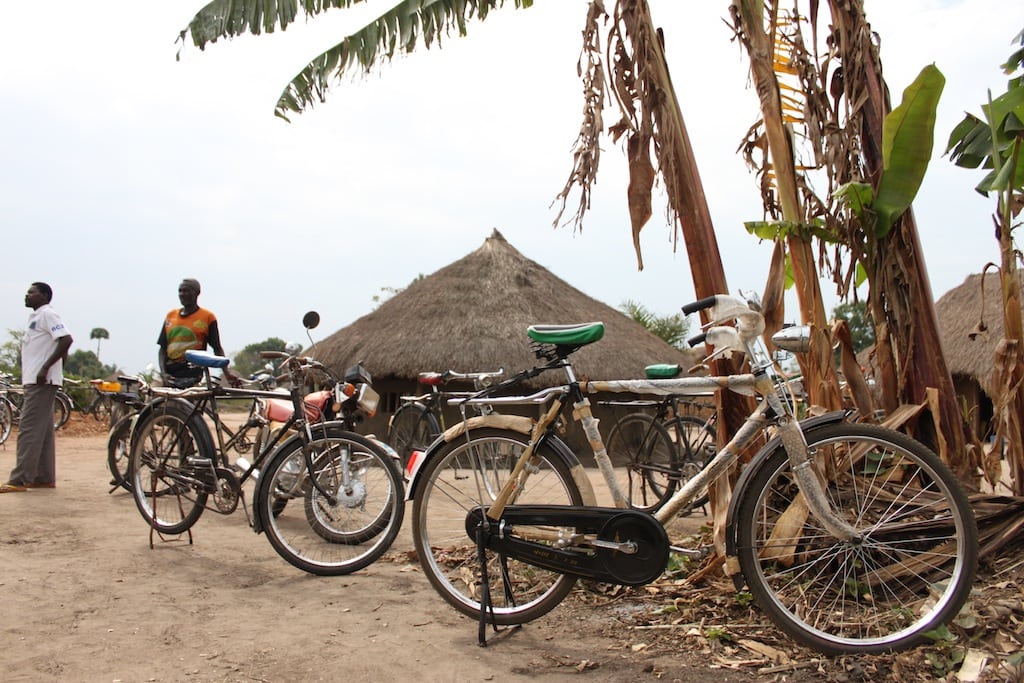Skift Take
Anything to bring attention to the Congo's political, social and geographic diversity is important to visitors trying to figure out exactly what's there.
It’s a far cry from Sir Bradley Wiggins pedalling to glory down the Champs Elysées, but what it lacks in finesse, the inaugural Tour de Congo makes up for in potholes, punctures and unpredictability.
About 60 cyclists are competing over nearly 600 miles in the Democratic Republic of the Congo’s biggest sporting event since Muhammad Ali beat George Foreman in the 1974 “Rumble in the Jungle”.
The $1m (£650,000) event, largely funded by the government with backing from private sponsors, hopes to a show a different side to a country weighed down by “heart of darkness” cliches. It is being filmed from the air by a media company using drones.
Prize money is unusually high for African cycling: $7,000 for first place, $5,000 for second and $3,000 for third. As in the better known Tour de France, the race leader wears a yellow jersey, but this one is emblazoned with the blue, red and yellow of the Congolese national flag.
Sylvestre Mutayo, president of the Congolese cycling federation, said cycling was once the second most popular sport in the country after football but lost ground owing to economic hardships. “The tour will show people that we have infrastructure, and that people are friendly and hospitable, open to tourism,” he told the BBC.
The competitors are up against some tough logistical asks – it is estimated that of the 95,070 miles (153,000km) of roads in Congo, less than 1,860 miles (3,000km) are asphalted – but at least the route will not take them weaving between rebel militias in the country’s tormented east.
Even so, the race began a day later than scheduled and saw numerous crashes. With eight stages being held, some in remote and mountainous areas, no one is expecting a smooth ride.
“It’s their first big race and I really think they’re trying to make a statement,” said Kimberly Coats, manager of Team Rwanda, competing alongside Benin, Burkina Faso, DRC, Republic of Congo, France, Ivory Coast, Tanzania, Togo and Uganda. “We have to give it to the DRC for trying something like this. It is a surprise but it shows that African cycling is moving forward and making a name for itself. Yes, it’s chaotic, but it’s real.”
The cyclists piled into a boat from Brazzaville to cross the Congo river to the capital, Kinshasa, Coats added, then had to take further transport to the port city of Matadi, where the race began on Wednesday.
Witnesses described the atmosphere as having an unmistakable Congolese flavour of exuberance and chaos. The UN’s Radio Okapi reported that the Congolese riders wasted 10 minutes in a confusion over the official start and sustained a number of punctures. A Togolese cyclist hit a dog crossing the road, it added.
Jock Boyer, Rwanda’s national coach, said on Thursday: “The starts are unimaginable in the sheer sounds – music blaring, bands playing repetitive rhythms – and teeming masses pushing in then thronging across the street when they see a rider, only to be replaced by another mass replacing the void left.
“The police are in full numbers and actually very good: they know the scene and crowd control which they do with a calm ease, not losing their cool, all fully armed and stacked with tear gas canisters.”
Boyer added: “There is nothing orderly about any part of this race. Few are versed in proper race protocol and organisation so it brings a handicap.
“The [cycling] federation, I think, realises this and as the days go on they will get better at it.”
The involvement of four Rwandan cyclists is politically symbolic at a time of fraught relations between its government and Kinshasa over Rwanda’s alleged support for rebels in eastern Congo. The Rwandan government made it clear to the team that, despite short notice, this was an offer they could not refuse.
Rwanda’s Emmanuel Rudahunga wore the yellow jersey after the first stage but experienced a setback on day two when his chain broke. There was no space for a spare bike in an accompanying vehicle so he had to change the chain by the side of the road.
The tour is due to end in Kinshasa on 27 June.
![]()
The Daily Newsletter
Our daily coverage of the global travel industry. Written by editors and analysts from across Skift’s brands.
Have a confidential tip for Skift? Get in touch
